Abstract
Temperature-sensitive (ts) mutants of vesicular stomatitis virus belonging to complementation groups I, II and IV inhibited the replication of wild-type vesicular stomatitis virus when mixed infections were carried out in BHK21 cells at 32, 37, and 39.5 C. The group IV mutant (ts G 41) was most effective in this regard; wild-type virus yields were inhibited almost 1,000-fold in mixed infections with this mutant at 32 C. In the case of group I and II mutants, inhibition of wild-type virus replication at 37 and 39.5 C was accompanied by an enhancement (up to 15,000-fold) of the yields of the coinfecting ts mutant. The yields of the group IV mutant (ts G 41) were not enhanced by mixed infections with wild-type virus at any temperature, although this mutant inhibited wild-type virus replication at all temperatures. The dominance of the replication of ts mutants at 37 C provides a rationale for the selection and maintenance of ts virus in persistently infected cells.
Full text
PDF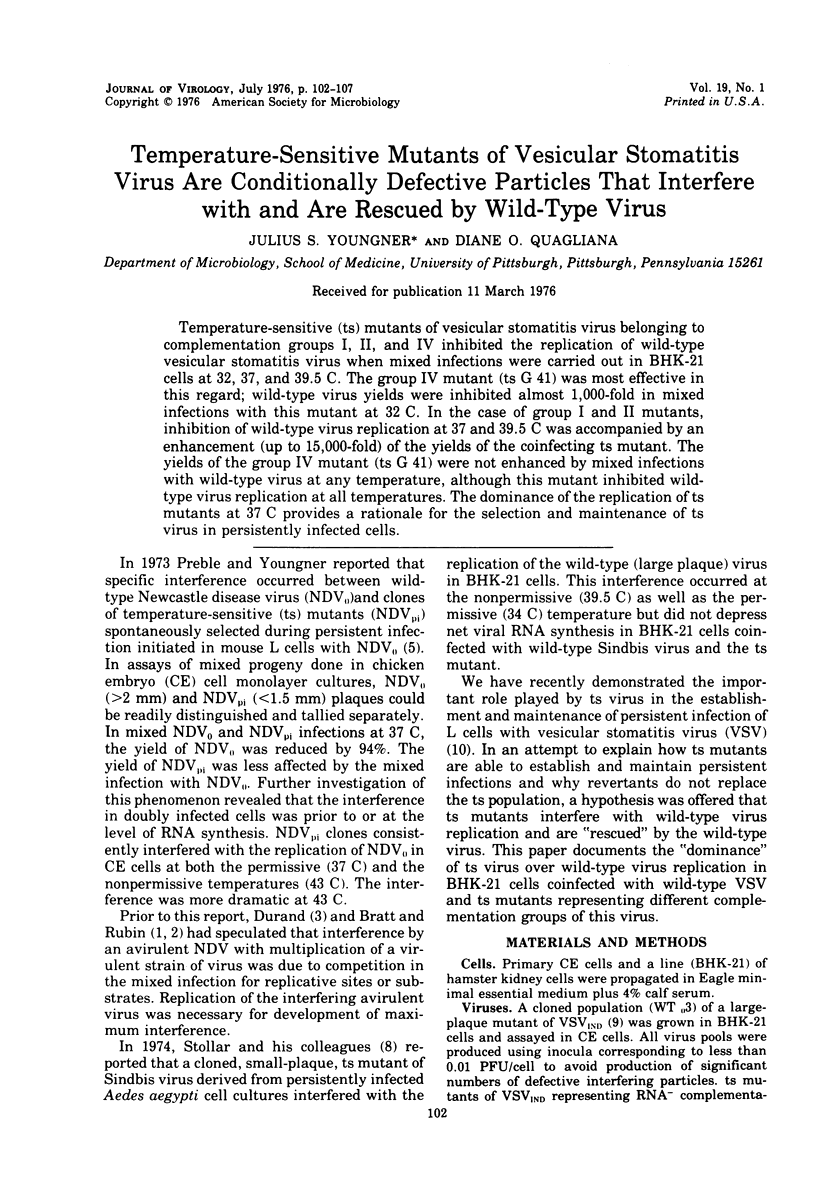
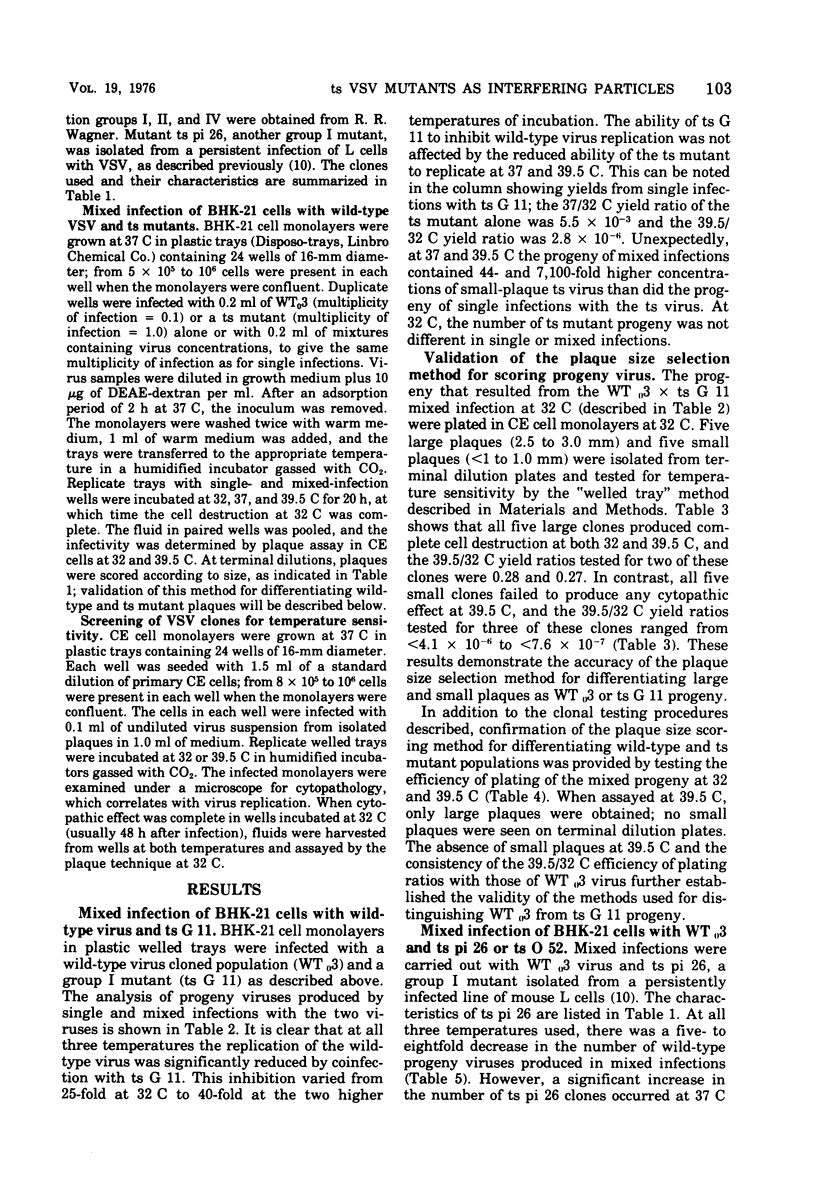
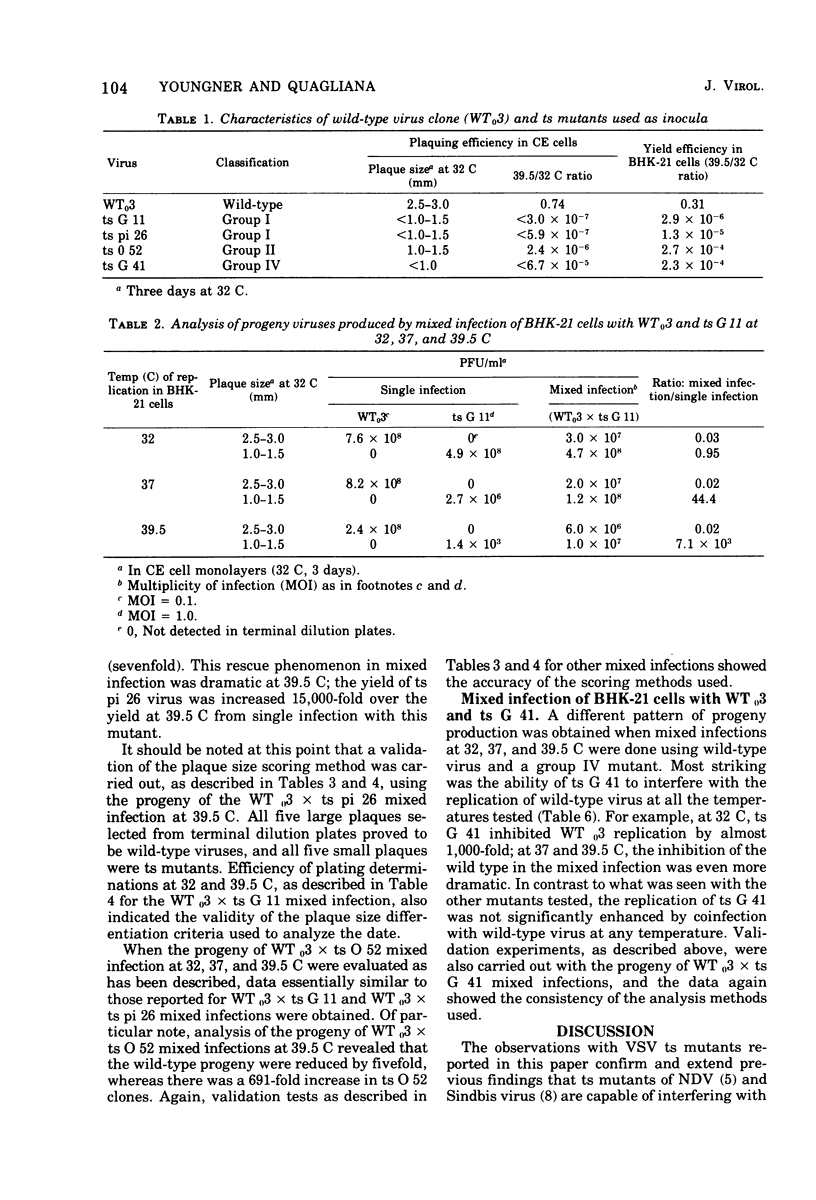
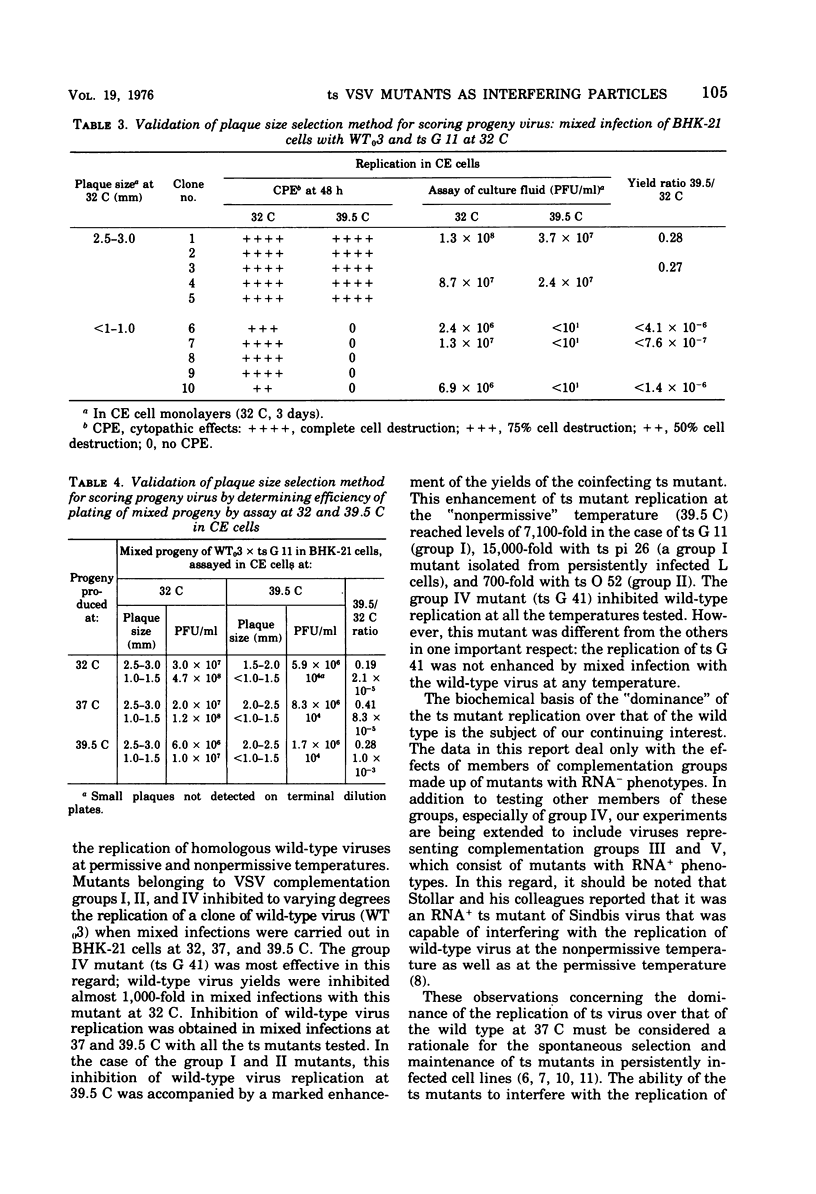
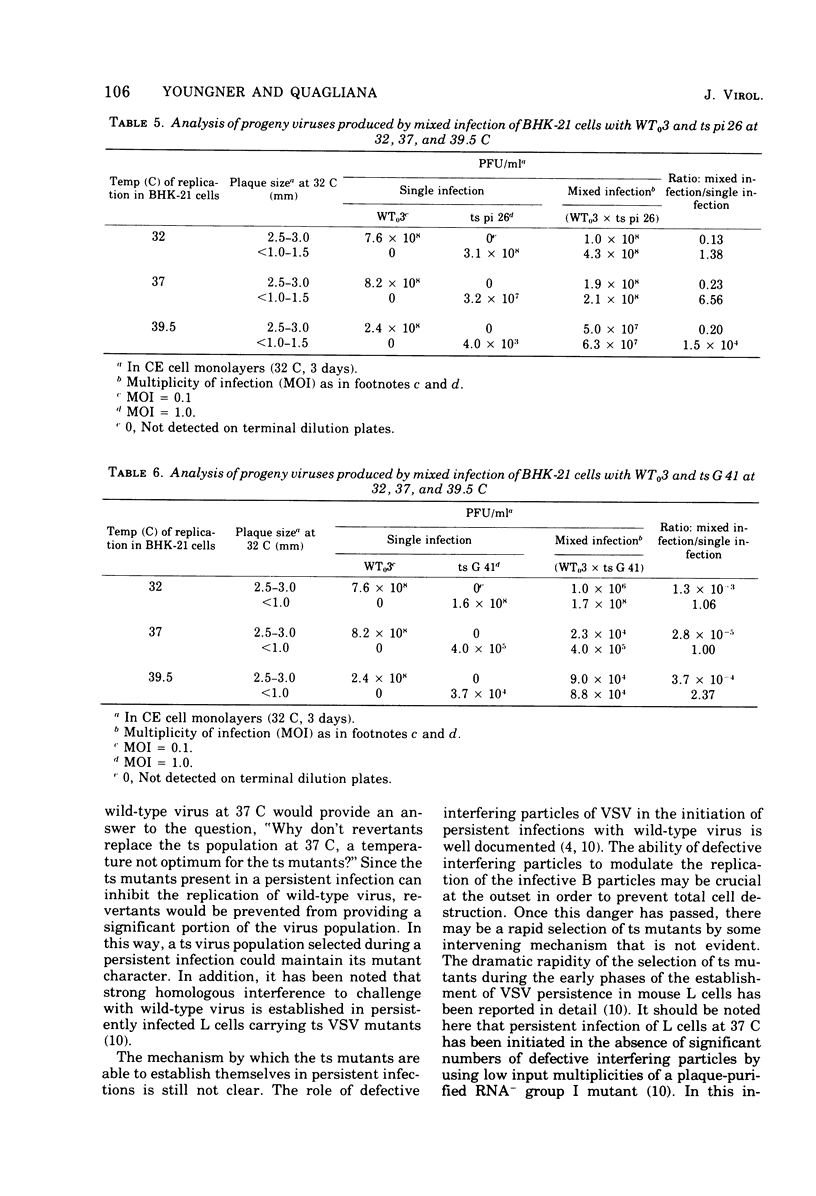
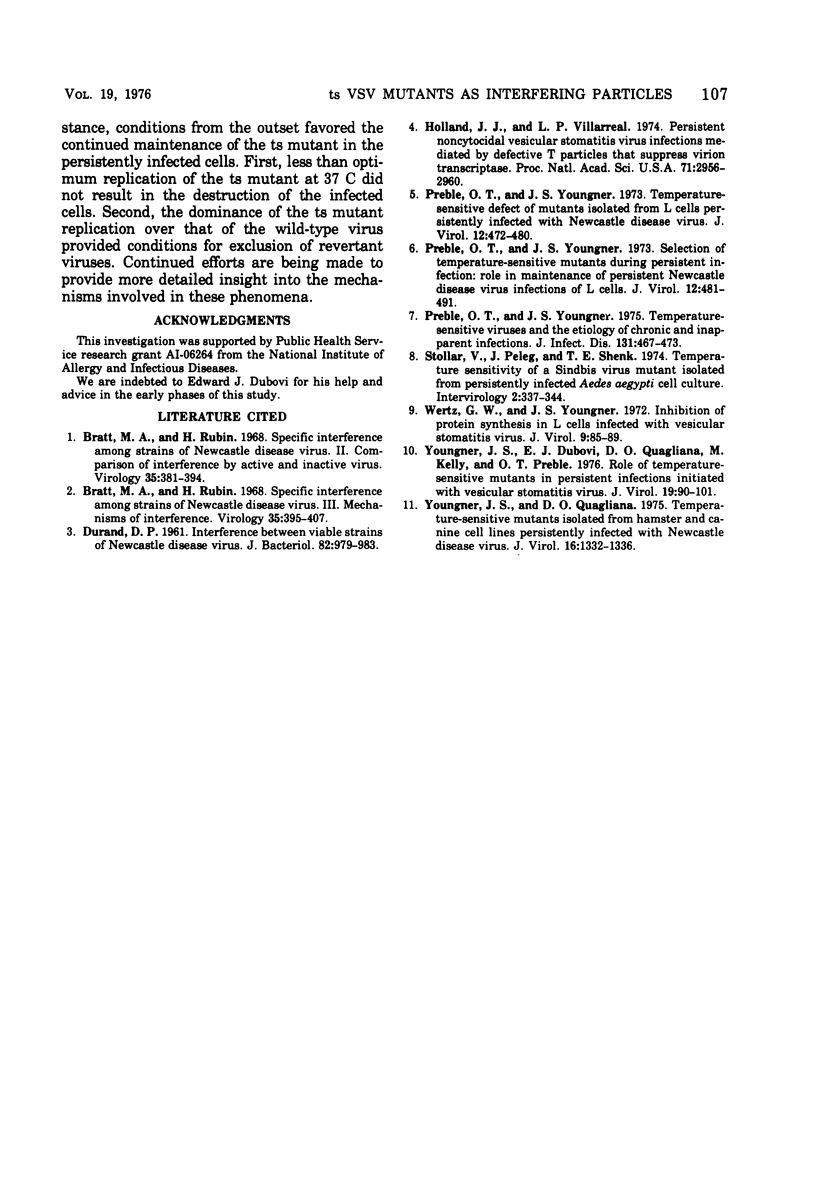
Selected References
These references are in PubMed. This may not be the complete list of references from this article.
- Bratt M. A., Rubin H. Specific interference among strains of Newcastle disease virus. 3. Mechanisms of interference. Virology. 1968 Jul;35(3):395–407. doi: 10.1016/0042-6822(68)90218-3. [DOI] [PubMed] [Google Scholar]
- Bratt M. A., Rubin H. Specific interference among strains of Newcastle disease virus. II. Comparison of interference by active and inactive virus. Virology. 1968 Jul;35(3):381–394. doi: 10.1016/0042-6822(68)90217-1. [DOI] [PubMed] [Google Scholar]
- DURAND D. P. Interference between viable strains of Newcastle disease virus. J Bacteriol. 1961 Dec;82:979–983. doi: 10.1128/jb.82.6.979-983.1961. [DOI] [PMC free article] [PubMed] [Google Scholar]
- Holland J. J., Villarreal L. P. Persistent noncytocidal vesicular stomatitis virus infections mediated by defective T particles that suppress virion transcriptase. Proc Natl Acad Sci U S A. 1974 Aug;71(8):2956–2960. doi: 10.1073/pnas.71.8.2956. [DOI] [PMC free article] [PubMed] [Google Scholar]
- Preble O. T., Youngner J. S. Selection of temperature-sensitive mutants during persistent infection: role in maintenance of persistent Newcastle disease virus infections of L cells. J Virol. 1973 Sep;12(3):481–491. doi: 10.1128/jvi.12.3.481-491.1973. [DOI] [PMC free article] [PubMed] [Google Scholar]
- Preble O. T., Youngner J. S. Temperature-sensitive defect of mutants isolated from L cells persistently infected with Newcastle disease virus. J Virol. 1973 Sep;12(3):472–480. doi: 10.1128/jvi.12.3.472-480.1973. [DOI] [PMC free article] [PubMed] [Google Scholar]
- Preble O. T., Youngner J. S. Temperature-sensitive viruses and the etiology of chronic and inapparent infections. J Infect Dis. 1975 Apr;131(4):467–473. doi: 10.1093/infdis/131.4.467. [DOI] [PubMed] [Google Scholar]
- Wertz G. W., Youngner J. S. Inhibition of protein synthesis in L cells infected with vesicular stomatitis virus. J Virol. 1972 Jan;9(1):85–89. doi: 10.1128/jvi.9.1.85-89.1972. [DOI] [PMC free article] [PubMed] [Google Scholar]
- Youngner J. S., Dubovi E. J., Quagliana D. O., Kelly M., Preble O. T. Role of temperature-sensitive mutants in persistent infections initiated with vesicular stomatitis virus. J Virol. 1976 Jul;19(1):90–101. doi: 10.1128/jvi.19.1.90-101.1976. [DOI] [PMC free article] [PubMed] [Google Scholar]
- Youngner J. S., Quagliana D. O. Temperature-sensitive mutants isolated from hamster and canine cell lines persistently infected with Newcastle disease virus. J Virol. 1975 Nov;16(5):1332–1336. doi: 10.1128/jvi.16.5.1332-1336.1975. [DOI] [PMC free article] [PubMed] [Google Scholar]


